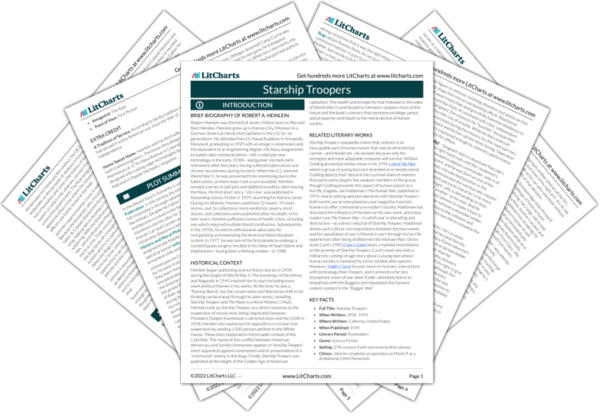Following their earlier struggle for dominance, Ace and Johnnie have become close friends. Ace is just the latest in a line of military men (following Mr. Dubois, Zim, and Jelly) who recognize Johnnie’s innate excellence and encourage it. Johnnie’s obsession with fresh pineapple juice offers a very small clue to his cultural roots, and although they won’t be revealed until the end of the book, it’s another nod towards a humanity that has moved beyond racial, national, and cultural divisions.
